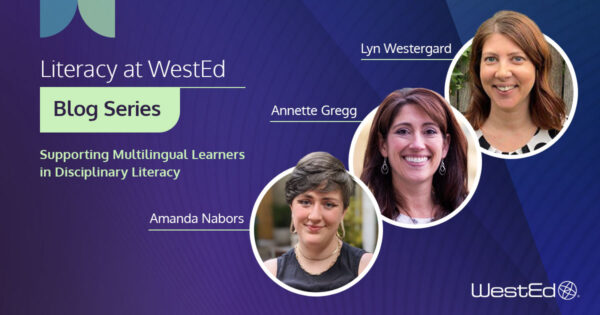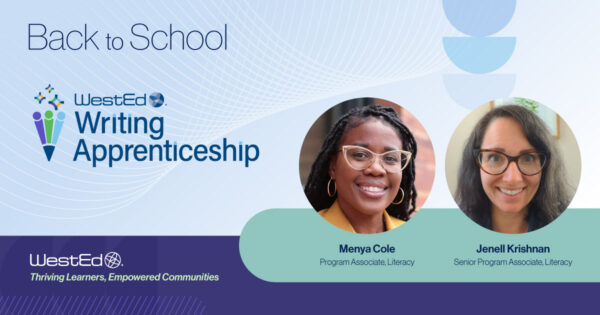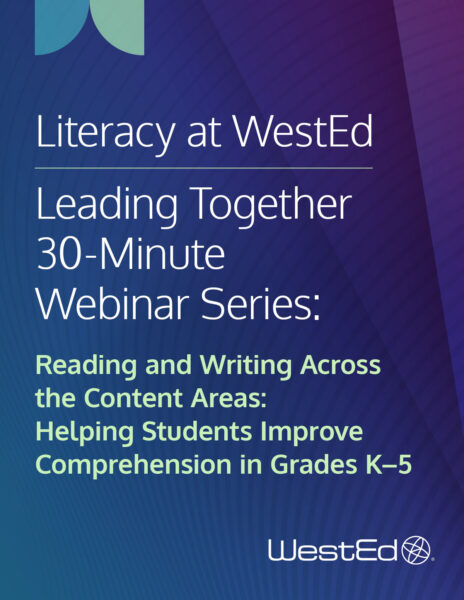Writing Apprenticeship is a new professional development model and instructional approach that aligns with Reading Apprenticeship to equip middle and high school educators to support students with real-world writing practices, providing a focus on discipline-specific understanding, reflection, and authentic connection with audiences.
How We Help
Professional learning services from Writing Apprenticeship support teachers in transforming writing instruction in English language arts and other content areas through a practical, research-based framework grounded in authentic writing practices.
A suite of flexible services—including in-person institutes and ongoing coaching—help educators implement the Writing Apprenticeship approach and sustain success over time.
Educators using Writing Apprenticeship
- regularly model discipline-specific writing processes through Writing Think Alouds;
- support students in developing metacognitive awareness of their writing choices;
- engage students in writing for real-world, authentic audiences;
- foster classroom writing communities through peer feedback and collaborative reflection;
- rework existing lessons to include intentional writing routines and strategies; and
- engage strategically with GenAI in ways that strengthen instruction and learning.
As a result of these techniques, students develop stronger writing identities, enhanced communication skills, and the confidence to write purposefully and effectively across disciplines.
Service Delivery
- Online and Onsite
Who Will Benefit
- Students
- Teachers
- Coaches
- School and district administrators
- County office of education administrators
- State education agency administrators

Ready to strengthen authentic writing support?
Connect with a WestEd expert.
“I am seeing more risk-taking and willingness to start writing. There is less pressure of the ‘blank page’ and having to draft the ‘right’ or ‘perfect’ text.”
— Ariane,
Middle School History Teacher
Featured Experts
Jenell Krishnan
Menya Cole
Misty Sailors
Connecting Research With Practice
Writing Apprenticeship builds on the decades of research underlying Reading Apprenticeship, particularly in the areas of metacognition, apprenticeship learning, and disciplinary literacy. This model draws on studies that highlight the importance of modeling expert thinking, engaging in authentic tasks, and building reflective writing practices.













